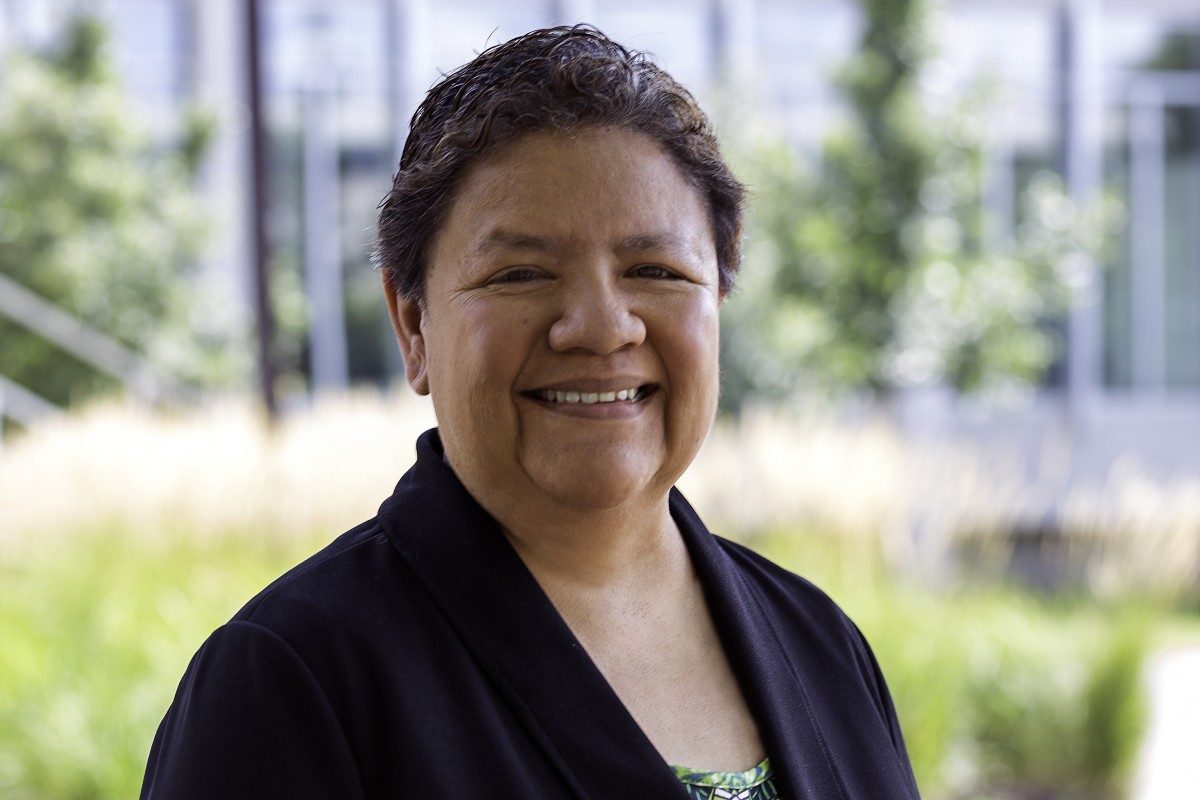
New Indigenous scholar Karen Favell wants to see greater Indigenization of education.
Reform needed to Indigenize education: lecturer
Faculty's new Indigenous scholar working to enact change
“How do I grade a sweat lodge?” Lecturer Karen Favell raises this question in pointing to the kinds of paradigm shifts necessary to Indigenize education.
Considering the history of Canada and First Nations, the Faculty of Education’s new Indigenous scholar says it has always been Indigenous Peoples who have had to adapt. More recently, however, she says she sees evidence of change.
“It’s tough to have a dialogue when we’re the ones who are always expected to adapt into the existing system, where I think there needs to be some kind of compromise,” Favell said.
As an Ojibway woman from Kenora, Ont., Favell has made a career of bringing change to Manitoba classrooms by focusing on lndigenization of post-secondary education, both in research and in practice—mainly through the use of music and art—but also by making curriculum more culturally relevant, and creating a more welcoming environment for Indigenous students.
In 19 years of teaching, Favell says it also makes a difference who is standing at the front of a classroom when an Indigenous student walks through the door.
“At Brandon, all the students I saw were native. Once they found out that there was a native person in the Learning Assistance Centre, all the natives came to see me,” Favell says.
She also served for a year as the chair of Aboriginal education for the ACCESS program at Red River College, before returning to teaching.
“But I saw what the needs were in post-secondary for Aboriginal education,” Favell says, adding that she saw good intentions toward increasing graduation rates for Indigenous people, despite the fact that results often fell short.
“There are opportunities, but they still function within the larger system, and the larger system is what needs to be Indigenized,” Favell says. “It’s not enough to Indigenize courses, or to hire Indigenous staff—although that would be important.”
For example, Favell recalls a professor performing a sweat lodge during a class, but when he submitted the grades, the faculty rejected them, claiming the professor couldn’t give all of the students As.
“He said: ‘Well, how do I grade a sweat lodge?’ You see, there are paradigm shifts that have to happen there,” Favell says.
More recently, Favell has seen a transformation resulting from a willingness on the part of the university to change in order to accommodate Indigenous pedagogy through UM’s commitment to enact the Truth and Reconciliation Commission’s Calls To Action.
“These ideas are not new, but maybe there is enough will this time,” says Favell, one of several new Indigenous scholars being hired across campus this year.
“I feel like we are going to be part of something bigger, and that maybe it will result in positive change,” she says. “I don’t know if it’s going to be everything we want, but that’s part of the compromise.”







Congratulations Karen. All the best in your efforts to being an Indigenous world view to teaching and learning at UM. There are many non Indigenous people who support and share Indigenous values – and good practice like land/place based education, community partnership and teaching the whole person.